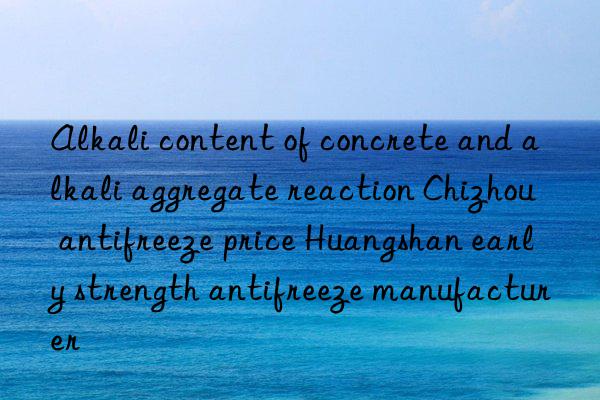
The alkali content of concrete, when there are no additional sources, refers to the Na20 and K20 content in the cement component, while the alkali content of modern concrete is the alkali content of cement, admixtures and admixtures The sum of the quantities. In AAR research, the alkali content is uniformly measured by Na20 equivalent, and the calculation formula is: Na20+0.658K20%=alkali content. International literature and domestic research experience show that there are three main types of AAR discovered so far, alkali-silicon Acid reaction, alkali-silicate reaction, alkali-carbonate reaction, and the earliest discovered and most common AAR is alkali-silicic acid reaction.
If the three necessary conditions for AAR are met in concrete, the pore solution with high alkaline content will dissolve from the capillary and interact with the activity in the aggregate. Silica reacts, causes expansion, and induces cracks. This deterioration process is slow, and some may not appear until several years, ten years, or even decades. Since it occurs inside the concrete, even if remedial reinforcement measures are taken, it will not appear. It cannot be eradicated, so it is called "cancer in concrete" by materials scientists. It is generally believed at home and abroad that when the alkali content of cement is less than 0.6%, it is low-alkali cement. Under this indicator, AAR generally does not occur. The alkali content of cement in northeastern, western and northern my country is relatively high. According to statistics (calculated as equivalent Na20), it fluctuates between 0.9% and 1.08%. In Shandong, it ranges from 0.8% to 1.0%. In southern China, it generally ranges from 0.6% to 0.8%. , which is extremely detrimental to preventing AAR.
<img src="/upfile/202210/2022101830586343.jpg"/
 微信扫一扫打赏
微信扫一扫打赏

